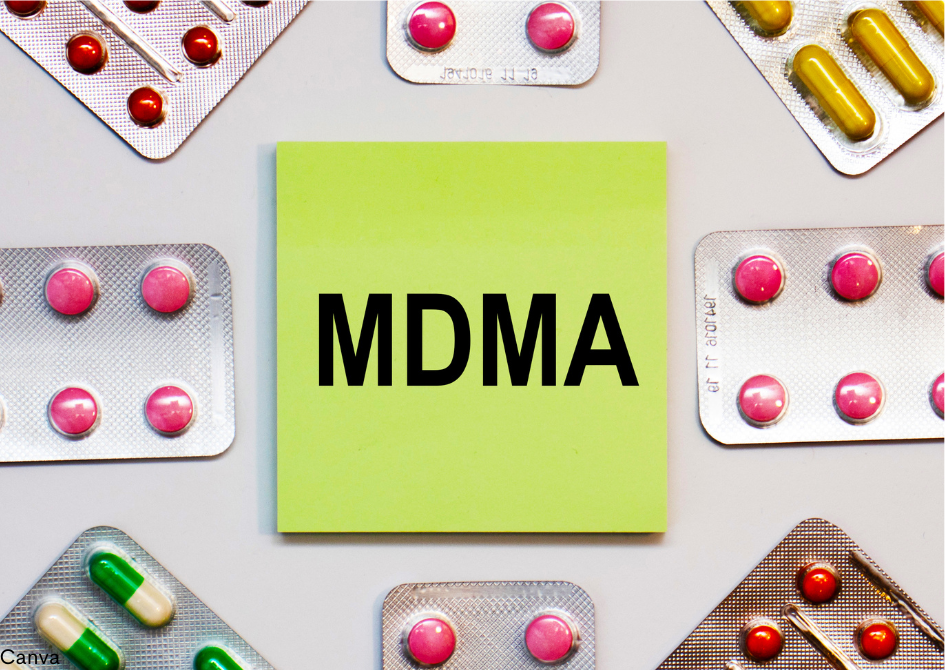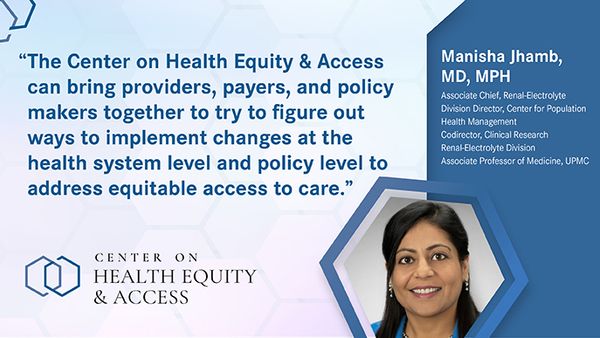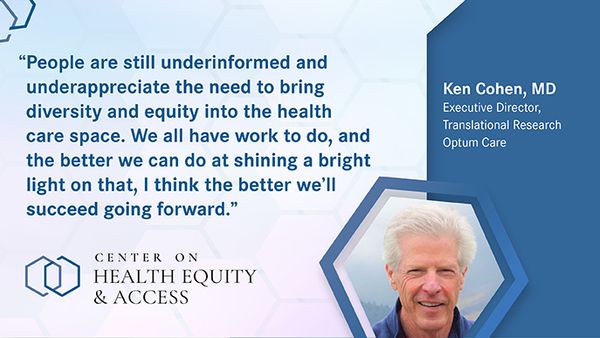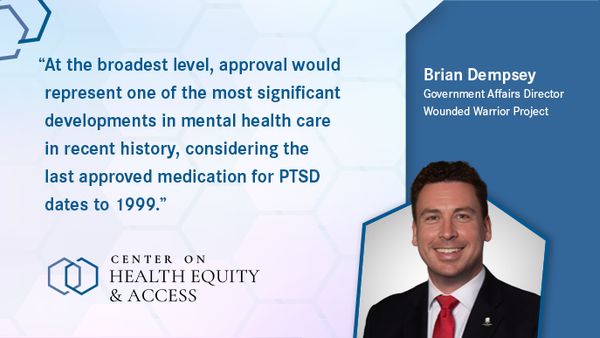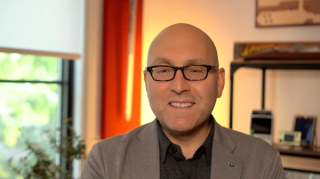
Center on Health Equity & Access
Latest News
Latest Videos

More News

A rundown of where Minnesota Gov Tim Walz stands on health policy issues and actions he's taken to improve health care.

Medicare Advantage customer service supports a less healthy, higher-need population, indicating that it should be designed and staffed to effectively serve complex, high-need patients.

On this episode of Managed Care Cast, we're talking with the chief medical officers of CVS Health and Aetna, as well as CVS Health's chief health equity officer, about primary and preventive care engagement, the impact of telehealth, and the role of trust in patient-provider relationships.

The Ochsner-Xavier Institute for Health Equity and Research (OXIHER) is targeting health disparities in Louisiana, focusing on population health management, outcomes research, health careers and equity education, community engagement, and health advocacy and policy.

Chinese adults with a poor socioeconomic status are at a higher risk of developing chronic obstructive pulmonary disease (COPD).

Decoding Rebates: Study Highlights Need for Further Research into Drug Pricing, Employer PBM Choices
In the second part of our interview with John M. O'Brien, PharmD, MPH, of the National Pharmaceutical Council (NPC), he calls for further research into employer choices and the influence of benefit consultants in the pharmacy benefit manager (PBM) and drug rebate landscape.

In part 1 of this interview, Musarrat Perveen, regional coordinator at Coordination of Action Research on AIDS and Mobility in Asia (CARAM Asia), explained the research she presented at the 25th International AIDS Conference and the disparities migrant workers continue to encounter in HIV care.

Accessia Health works with advocacy groups to understand specific needs, such as travel assistance, affordable care, and diagnostic testing, ensuring a personalized and human-centered approach to health equity.

Over 60 bipartisan members of Congress wrote a letter to President Joe Biden stating the urgent need to address the suicide epidemic among veterans, advocating for innovative treatments like therapeutic MDMA.

Minnesota Gov. Tim Walz has been named as Vice President Kamala Harris' Democratic running mate for the 2024 presidential election and has a proven track record in health care reform.

The growing list of insurers dropping coverage for costly GLP-1 weight loss drugs leaves patients to bear even higher out-of-pocket expenses while still struggling to meet their goals.

John M. O'Brien, PharmD, MPH, of the National Pharmaceutical Council, discusses his recent study, which sheds light on how important rebates are when choosing benefits for employers and who advises employers on these choices.

Ochsner Health's Connected Maternity Online Monitoring (MOM) program has been recognized for its innovative approach in managing hypertension during pregnancy and postpartum.

Aravindhan Veerapandiyan, MD, of the Division of Pediatric Neurology at the University of Arkansas for Medical Sciences, discussed the Duchenne muscular dystrophy (DMD) therapy landscape and barriers to treatment access.

We spoke with Musarrat Perveen, regional coordinator at Coordination of Action Research on AIDS and Mobility in Asia (CARAM Asia), who advocates at regional and global levels for policy reform of discriminatory practices that put migrant workers at risk of HIV and AIDS.

Almost half of insured Americans report receiving unexpected medical bills, leading to financial strain and contributing to worsening health outcomes for many patients, The Commonwealth Fund report reveals.

The Center on Health Equity & Access reported on new research in youth mental health, with expert perspectives on HIV, liver cancer, and health outreach.

Trusted community organizations can effectively communicate and connect underserved populations to necessary health services, Tiara Green, MSEd, Accessia Health says in an interview.

This research presented at AIDS 2024 shows that cognitive behavioral therapy (CBT) groups help to fill an unmet need among older persons living with HIV: to overcome the age-related health disparities this group experiences from being in long-term care and improve their health outcomes.

Amit Singal, MD, medical director of the Liver Tumor Program and chief of hepatology at UT Southwestern Medical Center, discusses his research on disparities in hepatocellular carcinoma care in the US.

Those in minority groups face barriers even after they’ve made the hard decision to seek mental health care. The Department of Labor aims to address systemic issues on a personal level.

Roughly 7% of US women of reproductive age have attempted self-induced abortions after the overturning of Roe v Wade in 2022; the FDA announced that the cost to file a drug using clinical data will increase to about $4.3 million in 2025; the suicide rate among US children aged between 8 to 12 years has steadily risen during the past 15 years.

Smokers with diabetes on Ozempic are less likely to receive smoking cessation interventions; initiative incentivizes hospitals to eliminate medical debt for low- and middle-income patients; high costs prevent mental health treatment.

Suicide has emerged as the leading cause of death among Asian American and Pacific Islander (AAPI) youths, a demographic that is rapidly growing in the United States.

Post–hematopoietic cell transplantation (HCT) prophylaxis using cyclophosphamide to stave off graft-vs-host disease had positive results compared with calcineurin inhibitor–based prophylaxis, regardless of whether the patient had a matched or unmatched donor.




